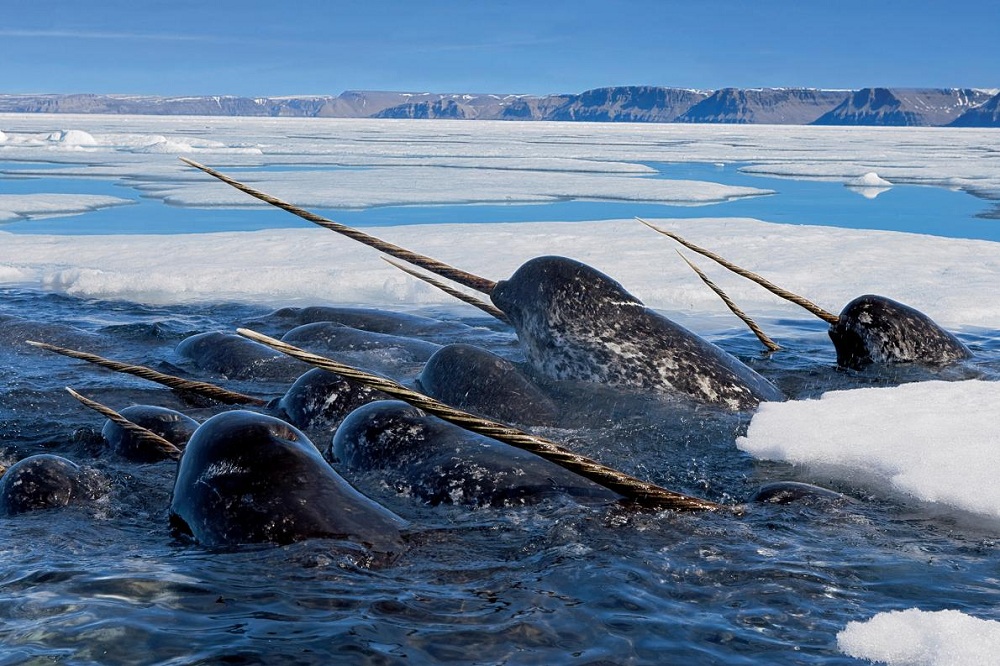Accused Narwhal Ivory Smuggler Detained in U.S.

When it comes to illegal ivory, it’s usually elephants that make the news. In this case, it’s the narwhal.
Narwhals are whales that live in Arctic waters. What distinguishes this “unicorn of the sea” is its long ivory tusk—an enlarged tooth of uncertain purpose (some scientists believe it’s a lure to attract mates, while others insist it’s a sensory organ).
The Inuit have traditionally hunted narwhals for their meat, but criminals want them for their ivory. Enter Gregory Logan, a former member of the Royal Canadian Mounted Police.
In 2013, Logan was fined nearly $400,000 in Canada—the most ever under the country’s wildlife trade law—for smuggling 250 narwhale tusks into the U.S. In 2012, the U.S. indicted him in connection with the narwhal scheme, charging him with conspiracy, smuggling, and money laundering.
Now Logan has been extradited to the U.S., the Department of Justice announced on March 16. He’s being held in custody until his trial in May. Prosecutors allege that Logan laundered his profits by having the money transferred out of the country to further his smuggling operation. Two other men were also involved in the conspiracy—one will serve three years in prison and the other is awaiting sentencing.
In the U.S., narwhals are protected under the Marine Mammal Protection Act. It’s illegal to import them, or their parts, without a permit.
Some other wildlife crime busts and convictions around the world this past week:
INTERNET IVORY: A coins and antiques dealer based in Saratoga, California, has been charged with trafficking and smuggling ivory from 2012 to 2015, according to the Santa Cruz Sentinel. He allegedly attempted to sell carved elephant ivory to buyers in New Zealand or Australia over the Internet in three separate instances without proper documentation.
TIGER SKIN HAUL: Authorities in Uttarakhand, a state in northern India, seized the skins of five tigers from a gang of suspected poachers, reports the Times of India. One of the men told the police that he was a member of a notorious gang and that the crew “killed the tigers about three or four months ago and hid the skin and bones in the jungle.” The cops busted the suspects while they were en route to meet buyers.
LOOTING LOGGERS: Police in Tamil Nadu, a state in southeast India, arrested two people in possession of 130 pounds worth of red sanders logs, reports The Times of India. The duo was unable to produce possession and transit certificates for the prized wood, which is native to India and considered endangered.
RHINO POACHING: A court in South Africa sentenced six people, some of whom were related, involved in rhino poaching to a total of 75 years in prison, says The Citizen. The group fatally shot the rhino and sold its horns to someone located near Pretoria.
More:http://news.nationalgeographic.com/2016/03/160320-wildlife-trafficking-crime-blotter/

